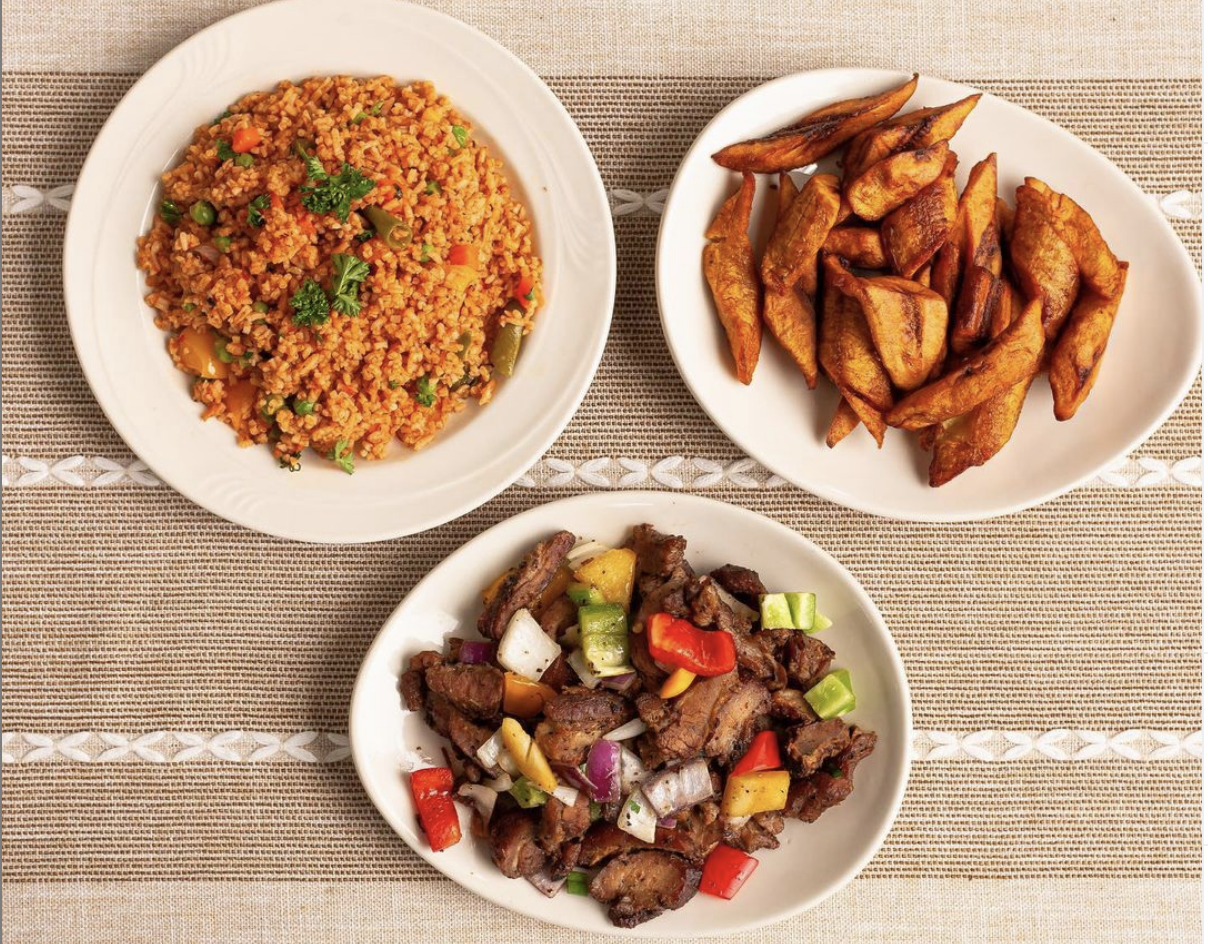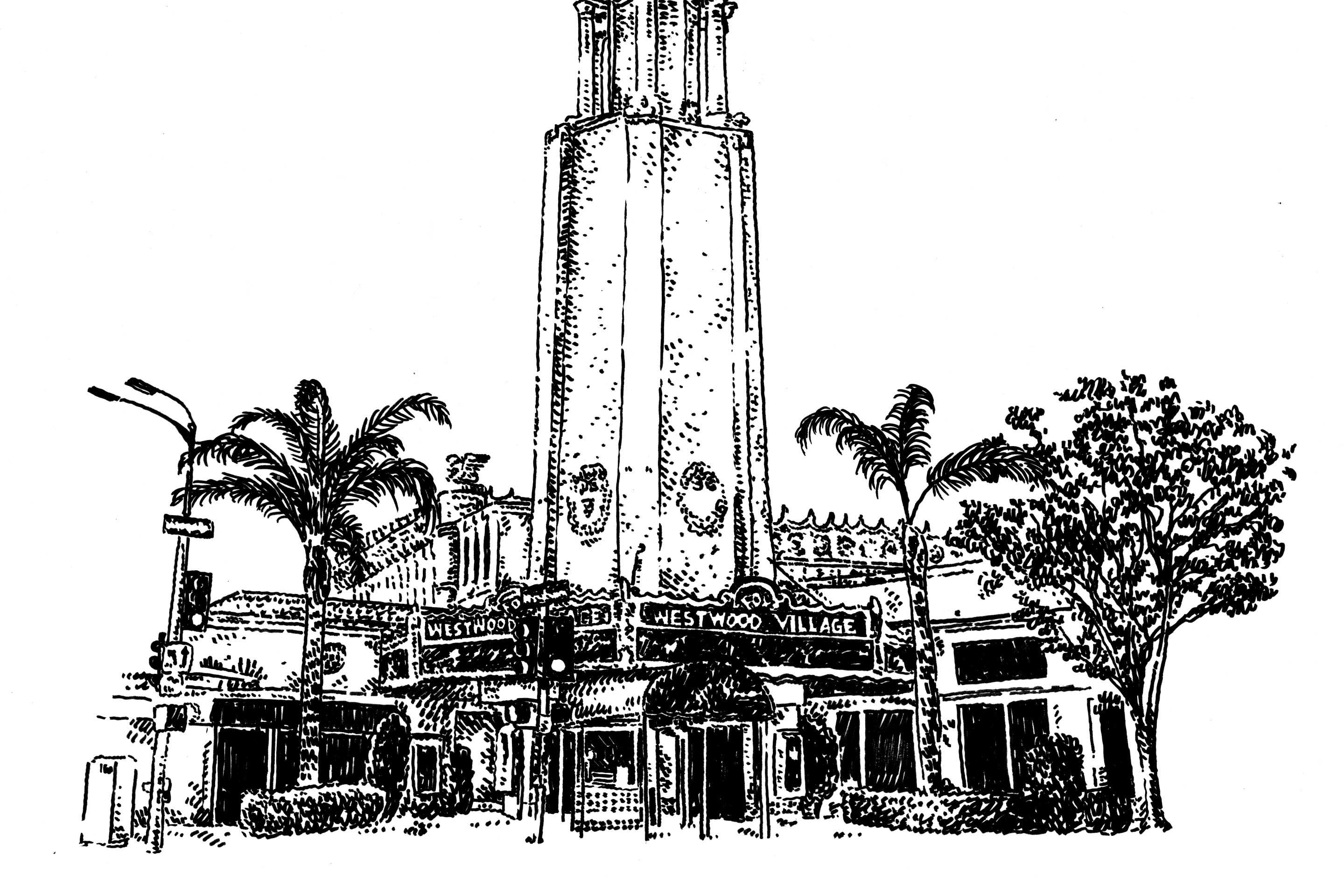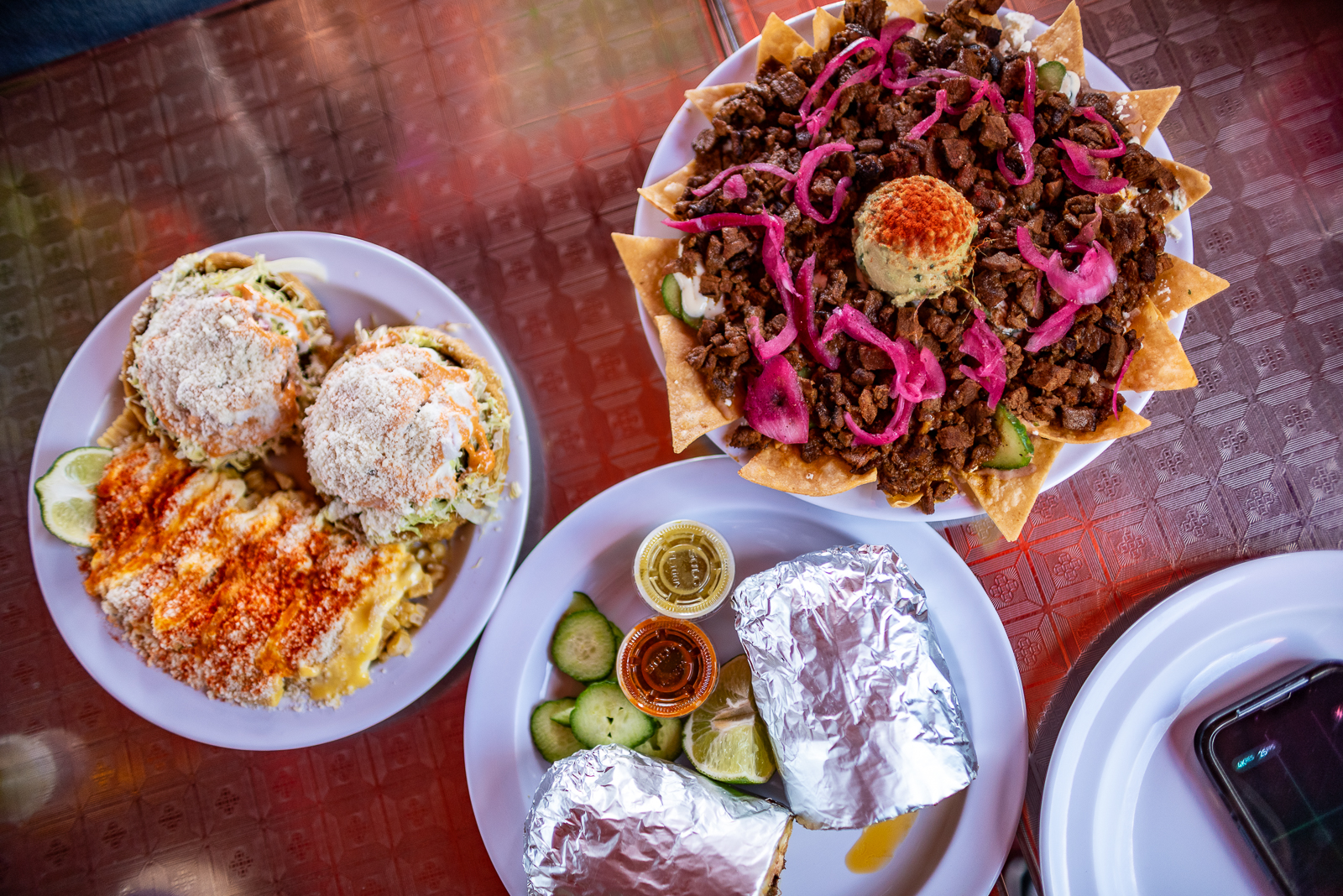[dropcap size=big]W[/dropcap]hat used to be Puertos Del Pacifico (and still has remnants of it painted on the window) is now Mama D’s, the first African restaurant in Boyle Heights specializing in the cuisine of Cameroon.
Like many deep Los Angeles food gems, the restaurant is located in a frenzied strip mall on Soto Street, sandwiched between El Pollo Loco and Samurai Sushi. The family-run establishment is the latest business to take a risk on opening during a pandemic in the [real] Eastside, a calculated risk that seems to be paying off. During a recent dinner rush, the owner, Claudia Bih Wanki-Flinn, was busy filling Doordash and Postmates orders.
Wearing a colorful T-shirt, the 32-year-old chef greets each customer with a smile, her green eyes lighting up the kitchen as West African music videos play on the TV screens in the COVID-restricted empty dining room.
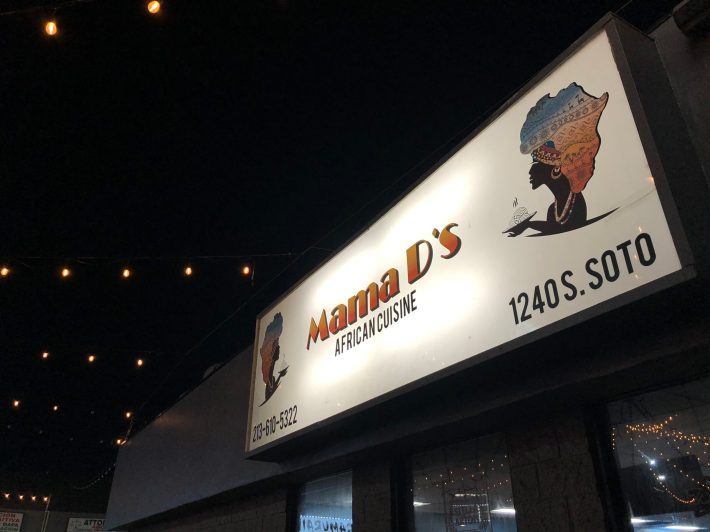
The house favorites are the egusi stew with beef and the Big African Plate with shrimp. Two generous plates that can be enjoyed outside in a tiny two-table section of the parking lot reserved for outdoor dining. This strip mall sets itself apart with neatly tended planter boxes, potted succulents on each table, and globe string lights that gather in the center like a big top circus tent.
L.A. Taco spoke with Danielle Passy, a faithful customer who drives from West Hollywood to satisfy her craving for her homeland cuisine. “This is the only Cameroonian restaurant in Southern California,” she proudly declares. “She’s doing justice by not changing up the food. I just hope she keeps the quality.”
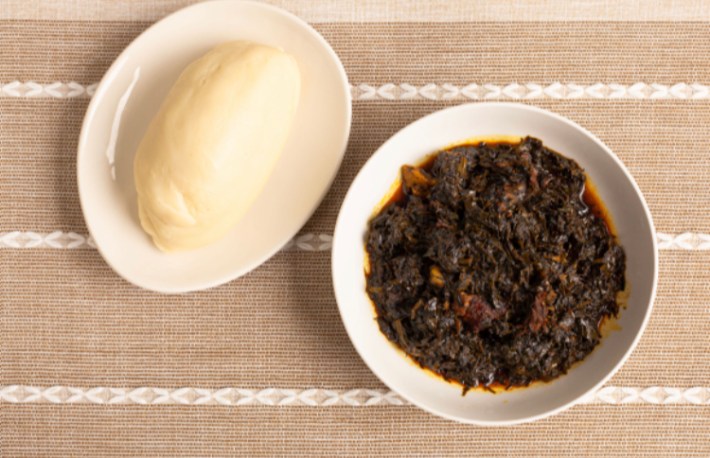
The Big African Plate is similar to a Hawaiian plate lunch, an extremely filling assortment of Cameroonian staples like jollof rice, black beans, and fried plantains, topped with a handful of delicious shrimp. The black beans were spiced, and unlike Central American-style plantains that are found nearby, Mama D’s are firmer and lightly fried. The egusi stew is reminiscent of chorizo and eggs. Made with ground protein-rich egusi (melon seeds), the thick stew has the consistency of curry. It is made by blending tomatoes and “country onions” (how Cameroonians refer to their local variety) with ground garlic, ginger, and paprika. Tender chunks of beef offset the starchiness of the accompanying fufu.
Claudia’s most confident about her eru, a traditional tribal entree native to Cameroon’s Bayangis people. It’s made using okazi, a bitter dark leafy green that grows wild in West Africa and is prepared with a combination of beef, honeycomb, and cow’s feet.
The fufu is potatoey and meant to be eaten by tearing off pieces with your hands, flattening them with your fingers, and dipping it into dishes like a spoon. Everything at Mama D’s is meticulously prepared, and takeout orders include a thoughtful thank you card. Save room for the puff-puffs, which are fried doughnut-like balls with a pointy tip that tastes similar to a beignet. Note: They kept well for Netflix munchies.
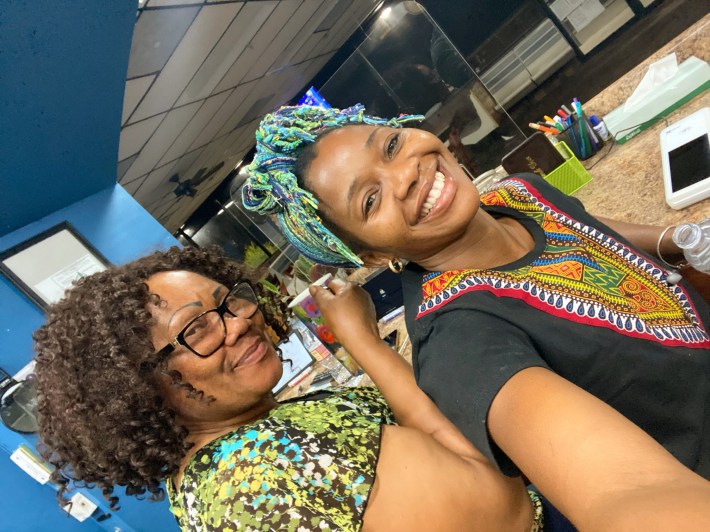
Born and raised in Yaounde, Cameroon, Claudia’s been cooking since she was nine. Her mother, Dorothy Wanki (Mama D), owns a popular restaurant of the same name in an African community outside of Washington, D.C. Dorothy cooked for her household of 21, including seven children of her own and 12 extended family members. When Claudia’s father built an elementary school shortly after her youngest sibling was born, her mother went to work with him. Claudia took over the kitchen, cooking all week for her big multi-generational family before moving to the U.S. for college. She has an MBA.
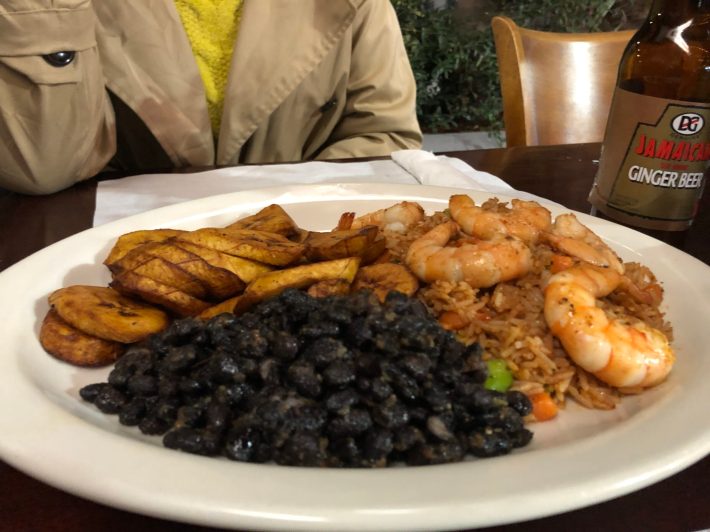
Claudia’s most confident about her eru, a traditional tribal entree native to Cameroon’s Bayangis people. It’s made using okazi, a bitter dark leafy green that grows wild in West Africa and is prepared with a combination of beef, honeycomb, and cow’s feet. Her soya (grilled beef brisket) and ndole, a peanut-based vegetable soup (highly recommended), tastes just like her mom’s, who Claudia says is the best cook in Africa.
“If a dish doesn’t have the right amount of seasoning, it’s not Cameroonian.”
“Even at the DMV, other African ladies with restaurants come up to her, asking for advice on how to make food right,” Claudia says of her mom who travels to Cameroon to supply crucial seasonings and ingredients either overpriced or not found here. Cameroonians rely heavily on their herbs, spices, and seasonings. Traditional ingredients like these can make or break a dish.
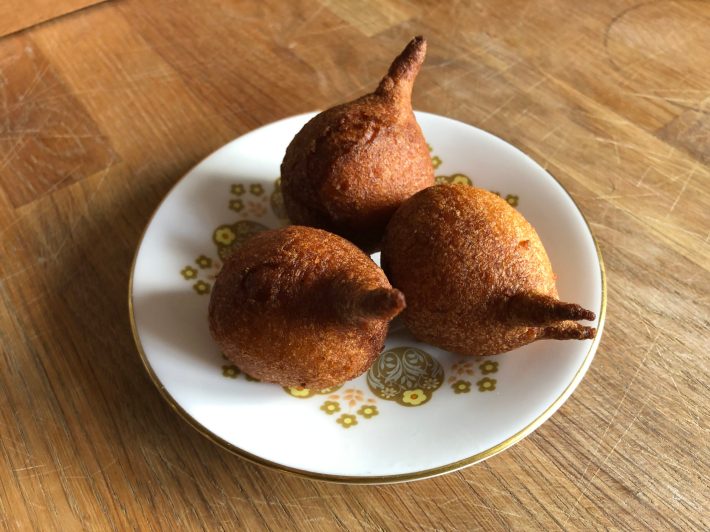
Claudia chose Boyle Heights because of its central location and reasonable rent. So far, she says, there have been no complaints from the community. There was a steady stream of locals, Africans living in Los Angeles, and food delivery workers when we dined. Up next for Claudia is a liquor license with her take on sangria. In the meantime, she’s looking to hire a kitchen assistant to keep up with the demand for a type of food that’s surprisingly scarce in L.A.
“If a dish doesn’t have the right amount of seasoning, it’s not Cameroonian,” Claudia says.
